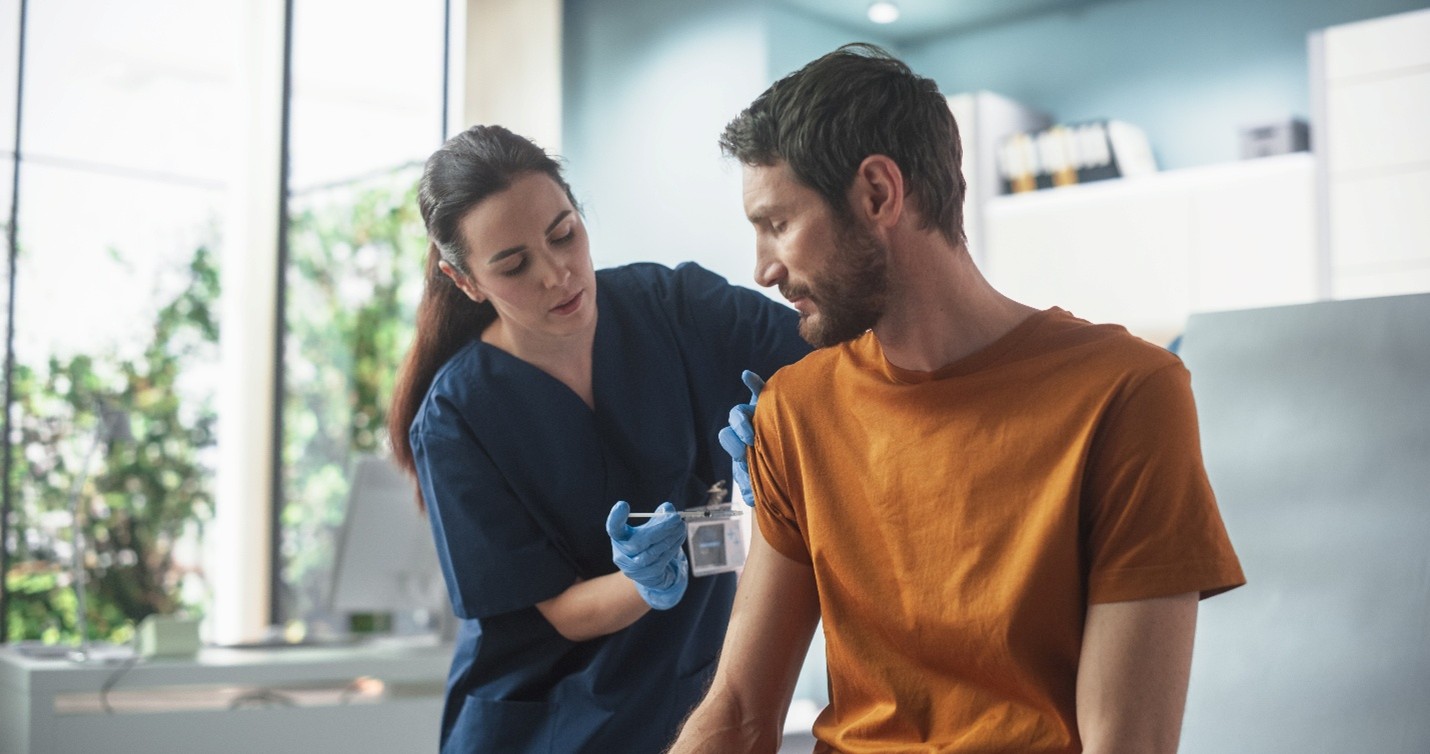During the COVID-19 pandemic, public-private partnerships produced a novel vaccine for COVID-19. While COVID-19 is no longer a pandemic, the virus still persists much like influenza. Vaccines for COVID-19 have changed alongside the virus. This guide will discuss who can get the COVID-19 vaccine, what side effects exist and additional information.
What is the COVID-19 vaccine, and is it safe?
The COVID-19 vaccine is a safe and proven method to help prevent infections of COVID-19. Adult clinical trials for the vaccines showed that they are all effective at preventing severe COVID-19 disease, hospitalizations and death due to COVID-19.
There are three COVID-19 vaccines available for use in the United States: one developed by Pfizer-BioNTech, one developed by Moderna and one developed by Novavax.
Both the Pfizer-BioNTech and the Moderna vaccines are messenger ribonucleic acid (mRNA) vaccines. These vaccines use a special protein containing instructions for how to fight the disease. The Novavax vaccine is a protein subunit vaccine. This type of vaccine includes harmless portions of the virus that helps your body produce defenses to fight the full virus in the future.
Who should get a COVID-19 vaccine in 2025?
The American Academy of Family Physicians recommends that all children aged 6-23 months and that all adults over the age of 18 should get the COVID-19 vaccine. Children between the ages of 2 and 18 are also recommended to get the COVID-19 vaccine if they have risk factors, and those without risk factors can get the vaccine as well.
Where do I get the COVID-19 vaccine in 2025?
The COVID-19 vaccine is widely available at many doctor’s offices, drugstores and other institutions that provide vaccinations. However, the CDC’s October 2025 immunization schedules do not recommend blanket coverage for adults like other health care organizations recommend, so availability in your location may vary.
Talk to your doctor if you would like to receive the COVID-19 vaccine. If your physician’s office doesn’t have the COVID-19 vaccine on hand, they can write a prescription for you to get it elsewhere.
What are the side effects of the COVID-19 vaccine?
In rigorous clinical trials, the COVID-19 vaccines have been shown to be safe. However, like many other vaccines, the COVID-19 vaccine can cause mild symptoms in some people. This happens because your body is making antibodies, and they are a sign that the body is responding the way it should. The most common reactions to the vaccine are:
- Pain at the injection site,
- Fever,
- Fatigue,
- Headache, and
- Muscle aches.
A small number of people have a severe allergic reaction (anaphylaxis) to the COVID-19 vaccines, but this is rare, and most people will not have any issues. But you will be asked about any history of reactions to vaccines or other injections just to be safe. If you have concerns or questions about any side effects after getting the vaccine, check with your family doctor.
Is there a new COVID-19 vaccine?
Like the influenza vaccine, a new version of the COVID-19 vaccine is available seasonally. Since the initial batch of vaccines during the pandemic, a new vaccine from Novovax has been approved. Additionally, the Johnson & Johnson COVID-19 vaccine is no longer available.
Should I get the COVID-19 vaccine if I’ve already had COVID?
Yes, as long as you are not currently sick. We know that natural immunity to the virus that causes COVID-19 decreases over time. There’s not enough information from the COVID-19 vaccine studies to show how immunity from the vaccine compares to natural immunity. It’s likely the vaccine will boost your immunity and keep you protected longer.
How much does a COVID-19 vaccine cost?
The COVID-19 vaccine is not free anymore for most people without health insurance. If you don’t have coverage or discounts, you might have to pay $200 or more for the shot. There may also be an extra administration fee for giving you the vaccine.
There may be local immunization programs that provide low- or -no-cost COVID-19 vaccines in your area. These programs may be run by your local health department or community organizations.
Questions to ask your doctor
- Can my child get a COVID-19 vaccine during the same visit with other vaccines?
- How long does protection from the COVID-19 vaccine last?
- If my child recently had COVID-19, how long do they need to wait to get the vaccine or a booster dose?
- Do I qualify for a COVID-19 vaccine in my state?
- What side effects might I or my children have?
ADVERTISEMENT
ADVERTISEMENT





